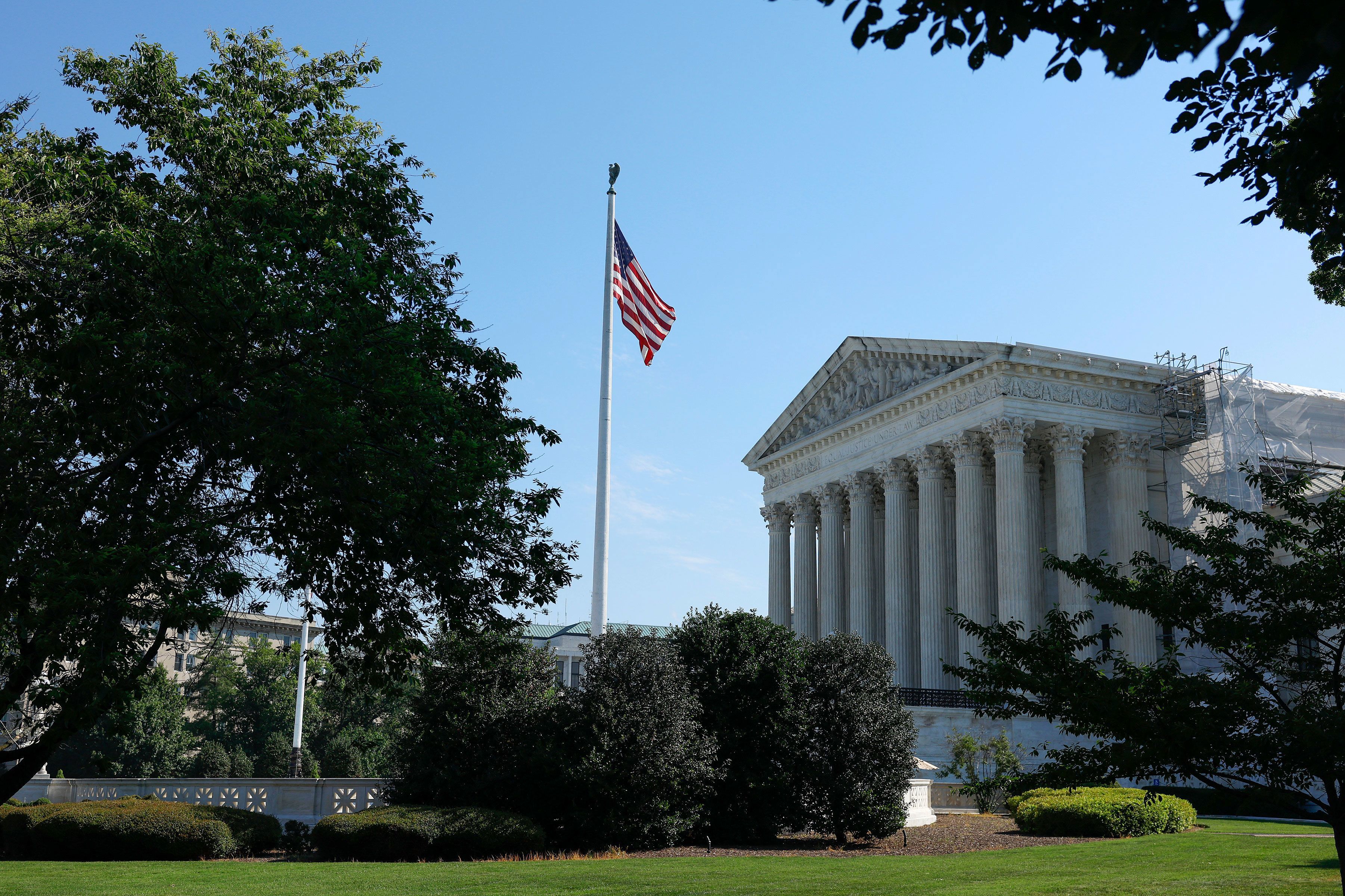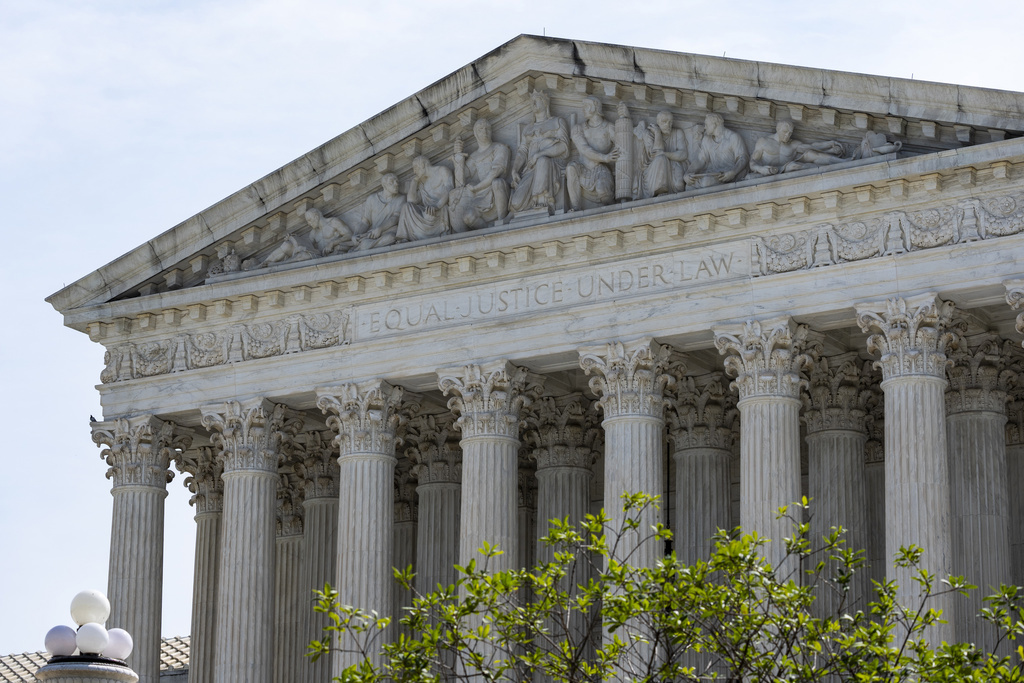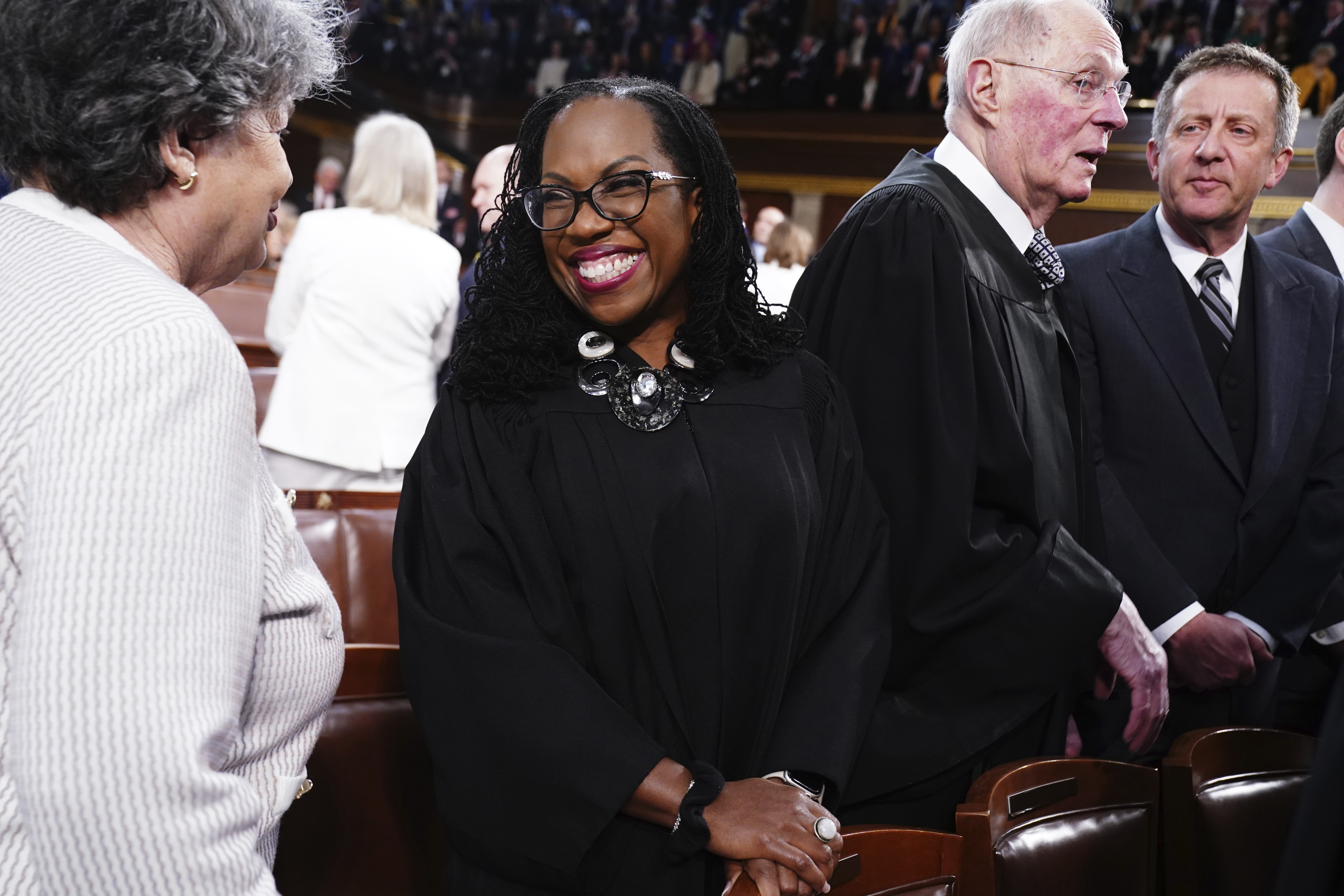The US Supreme Court appears poised to allow abortions in medical emergencies in Idaho, Bloomberg News reports, citing a document that was inadvertently posted on the court's website in an astonishing breach of protocol.
The opinion showed that a majority of the court agreed to dismiss the appeal, according to Bloomberg, which reported that it reviewed a copy of the opinion.
The release was a stunning development at the Supreme Court, which usually safeguards the release of its opinions. The abortion case was considered among the most significant of the current term that is winding down ahead of the July 4 holiday.

The release of the opinion marks the second time in two years that a major decision dealing with an abortion case has been prematurely released by the court. Two years ago, Politico obtained a draft of the high court's opinion overturning Roe v Wade – a document that was substantially the same as the final opinion the court released weeks later.
At issue is Idaho's strict abortion ban, which provides an exception for the life of the pregnant woman. The Biden administration argued that a federal law also required hospitals to perform abortions in cases where the health of the pregnant woman is at stake.
A dismissal would let stand an opinion from the full 9th US Circuit Court of Appeals that sided with the Biden administration in the case. Such a ruling is a win for the Biden administration and will be a relief to Idaho women who fear medical complications from their pregnancies could jeopardise their heath.
But it would leave unresolved the central question of whether federal law protects access to abortion in medical emergencies, and it is not likely to end the precariousness and uncertainty that doctors have felt about how to navigate strict abortion bans while caring for their patients.
CNN had not independently reviewed the opinion. Bloomberg did not post the document.

A Supreme Court spokeswoman confirmed that a "document" was "inadvertently and briefly uploaded" to the court's website. Supreme Court spokeswoman Patricia McCabe stressed that the "opinion" in the case "has not been released" and would be "issued in due course".
The copy reviewed by Bloomberg showed the court voting 6-3 to allow the emergency abortions to take place in Idaho on a temporary basis while the case continues.
The Supreme Court's decision "will prevent Idaho from enforcing its abortion ban when the termination of a pregnancy is needed to prevent serious harms to a woman's health" Justice Elena Kagan said in a concurring opinion, according to Bloomberg.
Justice Ketanji Brown Jackson wrote separately to say that she wouldn't have dismissed the case, according to the document Bloomberg reviewed.

"Today's decision is not a victory for pregnant patients in Idaho. It is delay," she wrote.
"While this court dawdles and the country waits, pregnant people experiencing emergency medical conditions remain in a precarious position, as their doctors are kept in the dark about what the law requires."
"If the reporting is accurate, this would be a significant but temporary victory for the Biden administration," said Steve Vladeck, CNN Supreme Court analyst and professor at the University of Texas School of Law.
The Department of Justice and the White House declined to comment on Bloomberg's story and the mistakenly posted document until the Supreme Court's official opinion is released.
Case was heard in April
How abortion bans have been playing out in medical emergencies has emerged as a particularly explosive political flashpoint in the fallout of Roe v Wade's reversal. The Idaho ban at issue allowed abortions if a pregnant woman's life was at stake, but not her health. Six states have bans like Idaho's that include no exception for the health of a pregnant woman, the Justice Department has said, though several of those laws are the subject of litigation.
The Supreme Court case, the second to deal with abortion this year, centred on scenarios where pregnancy complications were causing serious risks to a woman's health but not yet putting her life in jeopardy. The Biden administration argued Idaho's ban could force patients to, for instance, endure hysterectomies and other lifelong complications if doctors declined to provide an abortion in the emergency room.
The Justice Department sued Idaho over its abortion ban in August 2022, a few weeks before it was scheduled to take effect. It argued that a federal law known as the Emergency Medical Treatment and Labor Act – or EMTALA – required hospitals that receive Medicare funding to offer the procedure in medical emergencies. The law, passed in 1986, requires those hospitals to provide "stabilising" treatments for emergency room patients who are facing serious harm to their bodily functions.
Congress enacted EMTALA to stop hospitals from turning away patients who could not afford their care. The law does not specify which procedures hospitals must perform to stabilise patients and Idaho accused the Biden administration of wrongly interpreting the Reagan-era law to "create a nationwide abortion mandate in hospital emergency rooms". The state also argued that changes to the abortion law since its enactment meant doctors could adhere to EMTALA and the ban simultaneously.
But the Biden administration strenuously rejected that position, arguing that doctors would be hesitant to provide the procedure – even if they technically could – for fear of prosecution. US Solicitor General Elizabeth Prelogar, representing the Biden administration, told the justices that doctors likely would not provide an abortion if they feared a "prosecutor looking over their shoulder" who could "second-guess that maybe it wasn't really necessary to prevent death".
Idaho's law makes it a felony to perform an abortion, punishable by up to five years in prison. Doctors can also lose their medical licenes.
The decision came days after the Supreme Court unanimously rejected an effort by anti-abortion groups to limit access to the abortion pill mifepristone. The court ruled that the groups that challenged access to the drug did not have standing to sue, a technical decision that does not foreclose the possibility that others might.

At oral arguments on April 24, several members of the court's conservative majority expressed skepticism of the Biden administration's position, with some justices framing the case as a federal encroachment on state powers to regulate medicine. Republican-appointed justices also zeroed in on amendments Congress made to the federal law in 1989 that added language about a pregnant woman's "unborn child" to its protections. Idaho argued it was nonsensical that a law referencing protections for an unborn child would require hospitals to offer abortions.
The Biden administration countered that the references were added to make clear that hospitals couldn't turn away women who were in labor and whose foetus was in danger. Prelogar told the court that the phrase should not be read has displacing hospitals' obligations to treat women whose pregnancies were causing grave risks to their own health.
At the hearing, the court's three liberal justices focused on harrowing medical emergencies where, under Idaho's theory about the state and federal laws, women could be denied abortion care. Justice Amy Coney Barrett, a conservative, jumped into that line of inquiry, voicing surprise with how Idaho's attorney, Joshua Turner, was handling the questioning as the justice pressed him about some of the hypotheticals.
A US District Court in Idaho last year blocked enforcement of the state law. A three-judge panel of the Ninth US Circuit Court of Appeals paused that decision, allowing the law to take effect. Weeks later, the full 9th Circuit reversed the panel's decision, putting enforcement of the law on hold again. In January, the Supreme Court agreed to decide the case and allowed the law to take effect while it did so.
from 9News https://ift.tt/7w59Um2
via IFTTT
Comments
Post a Comment